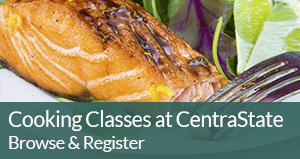A person far wiser than me once said that “you are what you eat.” So true when you consider that the body’s physical well-being is greatly impacted by one’s day-to-day diet regimen – of course, balanced with regular activity and disciplined rest. While a reality all year long, this is particularly important to note during the wintertime when the body’s immune system is increasingly susceptible to the grip of cold and flu season.
It’s generally believed that the body needs an extra boost during the coldest months. While I don’t discount this notion, I would point out that just because it’s cold outside doesn’t mean illness is right around the corner. In fact, viruses, bacteria and other germs are lurking 365 days a year. However, we tend to spend more time indoors during winter months, confined to smaller spaces, in far greater proximity to people, and, therefore, more exposed to germs. As a result, our body fights off viruses and infections far less effectively during the winter. Also, during the colder months, our bodies are not getting as much critical exposure to sunlight and the associated benefits of Vitamin D.
So, with this in mind, I would actually go a step further and change this time-honored quote to something more like – “you are what you eat . . . as long as what you eat is properly prepared.” Quite often, it’s overlooked that the way you cook is just as important as the foods you eat. Given that the likelihood, severity and longevity of illness is highly dependent on the strength of your immune system, please recognize that healthy cooking methods can make a critical difference – during the winter and all year long.
Healthy cooking – less fat and calories, a better you
Healthy cooking doesn’t mean that you have to become a gourmet chef or invest in expensive cookware. Through basic healthy-cooking techniques you can best capture the flavor and retain nutrients, while cutting fat and calories from your diet. Nutrients, including Vitamins A, C, D and E, are what matters most when it comes to supporting a strong immune system.
Frying foods or over-heating destroys some nutrients and adds unnecessary fats and calories. Just consider that for each tablespoon of oil you use when frying food, you’re adding in excess of 100 calories. While there are a number of healthy cooking methods to be discovered, I’d contend your immune system will thank you the most if you follow these:
- Stir-frying is not only a super-fast cooking method, but one of the most nutritionally packed. By cooking at very high heat for a relatively short time in a small amount of oil, the essential heat-sensitive nutrients in your bite-sized pieces of vegetables and meat, poultry, seafood or tofu are preserved and incredibly low in fat and calorie content. Asian-style veggies, such as Bok Choi and Chinese broccoli, are great green alternatives when cooking stir-fry style. But, make sure to avoid high-sodium seasonings like teriyaki and soy sauce. When performed properly, stir-frying is a highly healthful way to prepare food which will boost your immune system.
- Roasting is very much like stir frying, in that it maintains those ever important nutrients. But make sure to use a rack in the pan so the meat or poultry doesn’t sit in its own fat drippings.
- Baking is another oil-free, healthy option that minimizes the fatty content and will keep the important nutrients intact.
- Broiling is one of the simplest of all cooking methods and entails cooking food under high, direct heat for a short period of time. Because it’s a dry-heat method of cooking, there are no additional oils involved and it’s a great way to cook tender cuts of beef and chicken.
- Poaching, sautéing and steaming are other terrific cooking methods that preserve nutrients and will rev up your immune system.
Keeping it real – natural food sources keep in the nutrients and more
On the flip side, frying foods retains oil, and often doubles or even triples the calorie count. Far too many of my patients are aware of this, but fall into lazy habits. Then they see their blood pressure or cholesterol levels sky rocket and come back to admit their diets are poor. In the process, they are suppressing their immune system and leaving themselves more exposed to colds and other illnesses.
Keep your food sources as natural as possible. Get six to seven servings of fruits and vegetables in your diet every day, the best being the green leafy variety that are high in antioxidants, such as broccoli and spinach. Also, other great natural food sources, such as quinoa, brown rice and whole grain products offer Vitamin B, fiber and minerals. I also recommend that my patients supplement with a multi-vitamin if their diet is nutritionally challenged. During the winter months, we tend to eat more comfort foods and less fruits and vegetables, so the importance of vitamins this time of year cannot be underestimated.
When cooking with natural fruits and vegetables, like bell peppers, it’s so important to first soften them with a quick warm up. But don’t dry up and drain out their nutrients. Stay away from canned and processed foods that are high in chemicals and preservatives. If you’re going to use canned fruits and vegetables, first boil the ingredients and then supplement the ingredients with olive oil or canola oil to maintain the flavors. Ginger and turmeric are also a wonderful complement, as they have wonderful flavors and are low in sodium and fat. Remember, eat well – and prepare your food choices just as well.
Programs for cooking the right way at CentraState Medical Center
At CentraState, we have many programs dedicated to boosting your immune system through healthier eating. In addition to classes focused on cooking and how to prepare healthy meals and incorporate a healthy eating lifestyle – we have courses on sound nutrition and using food as fuel and the benefits of plant-powered meals.
For more information on all of the classes and programs offered at The Star and Barry Tobias Health Awareness Center, call 732-308-0570.
 Dr. Sabine Paul-Yee is board-certified in family medicine and maintains practices in Freehold and Hightstown. Dr. Paul-Yee can be reached by calling 866-CENTRA7.
Dr. Sabine Paul-Yee is board-certified in family medicine and maintains practices in Freehold and Hightstown. Dr. Paul-Yee can be reached by calling 866-CENTRA7.






